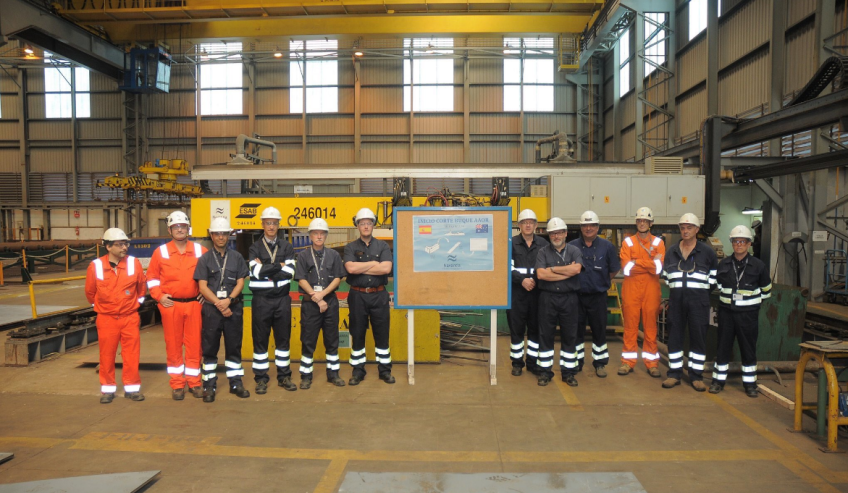The first cut of the steel being used to build the Auxiliary Oiler and Replenishment ships (AORs) for the Royal Australian Navy has been undertaken, following the completion of the critical design review.
Spanish company Navantia was awarded the contract to construct the ships which will replace the Navy’s current supply ships, HMA Ships Success and Sirius.
The new AORs are scheduled to be delivered by 2019 and 2020.
Managing director of Navantia Australia Francisco Barón said the cutting of steel on Monday marked an important milestone in the SEA 1654 project.
"Today we have reached the first major milestone in the delivery of this key enabling capability to Navy," Barón said on Monday.
"Navantia understands the importance of meeting targets at the initial design and build stages to deliver a capability on time and on budget and that’s why the importance of cutting steel today, on schedule, is so important."
Australian industry will play a key role in the build of the AORs, with a minimum $120 million of investment into Australian products, skills and expertise. As part of this, 4,500 tonnes of the steel has been sourced from NSW-based BlueScope.
In addition to BlueScope’s steel, the AORs Integrated Platform Management System – the system that controls and monitors all the platform systems – will be built in Australia by NSAG, Navantia’s joint venture with Adelaide-based SAGE Automation. Hobart’s Taylor Bros will supply a range of services including hospital, laundry and galley fitouts, while SAAB Australia will supply the combat management systems and Raytheon Australia will supply the communications systems.
Navantia Australia board member Warren King said Navantia’s engagement with Australian industry to build the AORs highlights the capability and capacity of local businesses, which has been further demonstrated in the build of the Navantia designed Hobart Class destroyers.
"We have a world-class supply chain right here in Australia – it’s a combination of the right skills, right people and right attitude – that’s something Navantia Australia has come to know over the years engaged with the Australian supply chain," King said.
King said Navantia’s understanding of the Australian supply chain makes Navantia confident that their bid for the SEA 5000 Future Frigates project will provide the best opportunities for Australian industry.
"Navantia sees our local industry as critical to the build of the Future Frigates and critical to the future success of a sovereign shipbuilding industry. It’s a relationship we at Navantia have invested in and will continue to develop to grow Navantia in Australia and to grow Australian industry," he said.
Navantia has full responsibility for the sustainment of both ships for their first five years of operation and is already working in the sustainment arrangements for the future ships, which will imply a bigger presence in Sydney and the opening of an office in Western Australia to support and maintain both ships.






